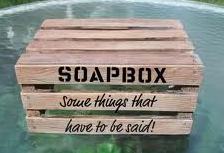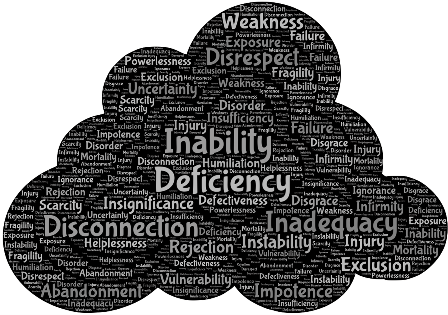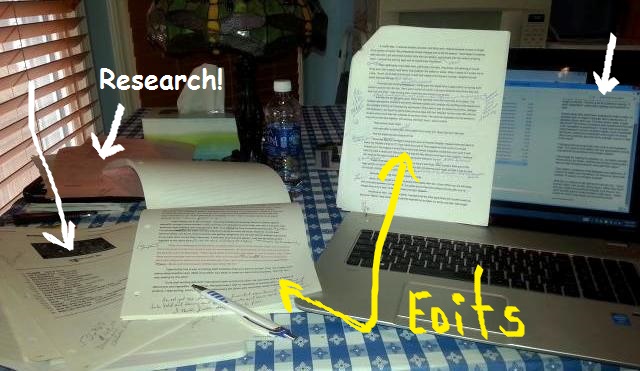
12 IRKSOME WRITER COMMENTS
Here are 12 comments said by “writers” that irk me and flip my switches! I’ll happily tell you why.
1. I don’t know what to write about/there’s nothing to write about.
WHAT? Seriously, folks. Life is a treasure trove of stories, both mundane and extraordinary. Begin in the moment….”I sat at the kitchen table staring out the window…” or “the coffee pot gurgled and I sighed as I poured my first cup. Monday’s. I hated them.” The possibilities are endless! I can’t empathize with anyone who says this to me.
- What’s the deal with your vocabulary? Why do you say “stodgy” instead of “old-fashioned?” Why do you say “myriad” instead of “many?”
So why don’t you use those words? Why is your vocabulary so limiting and poor? As a writer, words are your craft, your money, your paint, your world. Words are like music. Why use a B flat instead of B? Maybe it sets the mood better? Or has the kind of melody needed for the moment or the character? Use words to their full advantage and don’t dumb down for people. Ever. Don’t know a word? Don’t expect the author to teach you. Go look them up!
- I have writer’s block.
No. See #1.
- I just want to write what I want to write and if people don’t like it, too bad.
Actually I don’t have a lot of trouble with that thought. In theory, it is excellent. In practice, it is horrible. You have to find the balance between what you like to write and what people want to read. If you publish some drivel that you enjoy and no one else does, why bother to publish it unless you just want something to put on your coffee table with your name on it? Don’t waste your money going through a publisher and all that if that is all you want. Just make a word document and go over to Kinko’s or someplace like that. But if you really want to publish, learn where your style fits and what’s already published. Then find your niche in the genre. There is always a way to blend and yet be unique in a crowd. Find it.
- That is obscene. That is just porn. Well, I don’t write that crap. “Oh you write THAT stuff.”
Now now. There’s room for everyone. If you don’t like erotica or other racier forms of writing, then DON’T WRITE IT AND DON’T READ IT. But do not presume to be the moral or literary compass for everyone else. I don’t like BDSM and so I avoid certain kinds of books. But I will not stand for censorship. Books are there to share. Look at Madam Bovary, Lady Chatterley’s Lover, or even Harry Potter! All three are banned books. Are banned books. Should I tell you can’t read Harry Potter because some person’s religious sensibilities were offended? No, you write what you want but always be mindful that if you tread in turbulent waters not everyone will be anxious to ride your waves. Be accepting, consider your audience and move on.
 6. I want to be a writer but I don’t have time. Or I’d love to sit home all day and write.
6. I want to be a writer but I don’t have time. Or I’d love to sit home all day and write.
First off, becoming a writer does not necessarily mean you sit home all day and write. Most people have lives that are busy with jobs, kids, hobbies, friends, troubles, and writing has to find a way in. However, writers make room for writing because they can do no less. Writers have learned they have to write. Writers look forward to that release, the expression, the exploration, the discovery that writing provides. There is ALWAYS TIME to write. No matter how busy you are, you have time. Do you go to lunch? Do you blog? Do you keep a diary or a journal? Do you read the paper with your coffee/tea/soft drink? Do you have 10 minutes at the end of your day when you play solitaire on your computer?
No matter your job or your family life, there are times you can program to write. Regular time. Every day. First in the day, last in the day, over a sandwich or instead of something else, but you can always put writing in your life. That is if you honestly WANT and NEED to. Sometimes it is easier to say you are a writer than to actually be one. Stop talking about it and be one. The daily/nightly practice will lead to a wish to write more. Trust me on this.
- I don’t want to share what I’m working on because someone might steal my idea.
Really?? Are you so certain that you have a wholly original, hot idea that has never been done before and is so dynamic and wonderful that someone can make a best-seller out of it?? Then you better get an agent and get that thing published! And if it is that good, you should have no trouble finding an agent and a publisher, right?
Okay, back to planet Earth. It is improbable that your book/story idea is so darn hot that someone runs away with it. And they can only do that if you don’t finish what you start. Truly there are very few original ideas left. What people learn to do is take old stories and make them new by adding new twists or new characters. Stop worrying about who is going to rip you off and worry more about actually writing and finishing that project of yours. Then realize that you need to share it for proofreading. beta comments, and publishing. Stop thinking you are a phenom and just write, ok? (Unless you are a James Patterson, Stephen King or JK Rowlings prodigy, then what are you worried about?)

- I’m afraid of what you’ll think when you read it. It’s my baby, you know. I want you to like it.
Anything created is a part of us. Painters, musicians, sculptors, writers….we create and give life to something we hope will be wonderful. Certainly approval is what we seek in sharing. But guess what? Approval comes later. First, learning the craft means critiques. Means criticism. Means suggestions for improvement. Means re-writes and it means – gasp – deletions. Folks, toughen up because any beta reader, editor, proofreader, formatter is going to tell you things that you don’t want to hear. And you have to be smart enough and savvy enough to take it, learn from it, and grow from it. Who among us has never been told our work needs work? Who hasn’t heard, “not for me, not our style, not up to our standards, not developed enough, not current, blah blah.” Or worse, “I read it and I didn’t really like it.” Hey, let’s keep it real. First, you are going to be edited to death. Live with it. Second, not everyone is going to “love” what you write. You write first for you and second for them. Not all of “them” are going to like “all of you.” So, be prepared and move on.
- My editor says I need to delete this whole section. What the hell does he/she know? Its my story!
First, l hope you are working with a professional. And if so, then what he/she knows is legion compared to you. Second, a good editor will have two things in mind, to produce the best story and to produce a story that sells. If you are seeking to be published in a magazine the editor will want to make sure it is what the readers want and that it reads well. Experience is the teacher here. Listen and learn and yes, question, and then learn s’more. If you feel so violently that you know more than your editor and you cannot reach an understanding, then accept you won’t be published. That is the editor’s right and your lesson. That’s the breaks, kiddo. If you are publishing a book, your editor will have read the entire work and has an understanding of what works and why. Listen, learn, adapt and seek compromise once you have experience under your belt. If you are a greenhorn (a novice, an amateur, a first timer), you do not know more than your editor. If you feel you are being butchered, discuss it. Again if you think you know more/better than your editor you can pull you project. However, if you have learned your craft, and this is your submission after years of hard work, it will show in your writing. In most cases, your editor will have your best interest at heart but remember, their job is to make it right and make sure it sells. Remember that.
- It is the story that matters, right? What is the big deal with looks and formatting? Who really cares?
I do. When it comes to Indie authors, there are two sides of this argument. One is that it is the story that counts and everything else is just stuff and nonsense. The other side is that your book is your name and reputation and should have a professional appearance that can stand up against any “traditionally” published book. This is one subject that I am anal about. If you are going to put a book in print, make sure you do it right. There are guidelines to follow on what a print book should and shouldn’t have inside. There are guidelines on how to make quality book covers. If you go through all the effort to write a superior story and have it edited, then make the book reflect your hard work. Invest in a cover that is better than your vacation photos. Make sure the copy on the cover is as well written and edited as diligently as the interior. Invest in a quality author photo, not one from your smartphone. Layout the book in accordance to the CMS (Chicago Manual of Style). Understand what front and back matter is expected to be there and where it is located. If you write fiction know what should NOT be included that maybe belongs in a non-fiction book, etc. Looks and formatting do count. When I pick up a book and I open it, I don’t want to see things that belong only in an ebook or to find links in a print book that are gobbledygook (itty bity links that mean nothing in print) or numbered blank pages, or “#” at the end of a chapter. Make your print book good enough to sit on a stand in the library! Don’t go cheap binding, tossed together formatting, sloppy or illegible fonts, etc. Your name is on the book. It reflects you. The story matters most of all. So dress it in the finery that it deserves. Don’t let me be able to tell the difference between your Indie book and a traditionally published one from Knopf or Tor or anyone else. First impressions DO COUNT, you know.

- I’m afraid what I write won’t be any good.
I’m afraid. Those are the key words. Realize that you will always be your own worst critic and your worst enemy when it comes to your writing. Until you make peace with yourself and believe in you, you will have to learn to deal with the scaredy- cat in you. Truth is no matter how much I learn about writing and how many things I write, a part of me is always a little afraid that it won’t “measure up” or be any good. What I have to realize is if I give my best work then it most certainly will measure up. And if I continue to learn and improve I will stop feeling so much fear and learn to channel that fear into excitement and nervous anticipation. We fear because we know we are not prepared. We don’t like the unknown. Reduce those fears by arming yourself with a well-honed craft. A pen that writes with confidence that comes from a place of knowledge is a pen to be feared by others but not by you!
- Finally – and I hear this ALL the time – I don’t have time to read much less write. Or I wish I had time to read AND write. It’s write or read. I can’t do both.
Okay, now hear this. Great and prolific writers are great and prolific readers. To write well you MUST read. Voraciously. Your mind is improved by reading. Your vocabulary is improved. Your imagination is improved. Your idea bank is expanded. You learn what is being produced in your genre, what is selling and what you like and don’t like about it. You gain an understanding of plotting and characters and story rhythms. Example, I hear someone say, “oh it dragged in the middle.” And then when you say that their story is dragging in the middle, they understand. Or they have ideas on how to fix it. They “get it.” Comparatively speaking, such lessons are invaluable. If you don’t know what makes a good plot arc because you haven’t read any good books, then how do you expect to understand how to make yours flow? If You are told it lacks a dynamic element, will you understand? What have you read that can compare? Reading gives you a sense of good writing. It rubs off! All well-established, famous, prodigious writers read A LOT. So get with it. Make time. It is in the best interest of your inner inkwell. No more excuses — go read a book (or twelve). (Not sure what to read? I publish my book reviews here for those who are looking for good stuff).
_________________________________________

That’s my rant for today. Here are a few last tidbits.
GIVEAWAY in progress! Today is the last day to get in on my giveaway. Ten years ago I published my photography book and to celebrate the anniversary I’m giving away a HARDBACK copy of it – I Wish You Joy. It’ll cost you $47 on Amazon.
Go here and enter. Random winner! ENDS AT NOON TODAY!!!
And don’t forget to check out the latest Fireside Chat video too. I was pretty off the chart. :)
________________________________________
Getting down to my last pens on Instagram. With only about eight Monday’s worth of novelties left, don’t miss out on these last goodies. Check me out here.
________________________________________

I’m about to release my upcoming book cover! If you subscribe to my Newsletter, you’ll get to see it first! What? You haven’t subscribed? Get on the list now!
________________________________________
HAVE A VERY HAPPY FOURTH OF JULY! Be safe out there. Come back soon.
I remain, Yours Between the Lines,
Sherry




















 6. I want to be a writer but I don’t have time. Or I’d love to sit home all day and write.
6. I want to be a writer but I don’t have time. Or I’d love to sit home all day and write.






